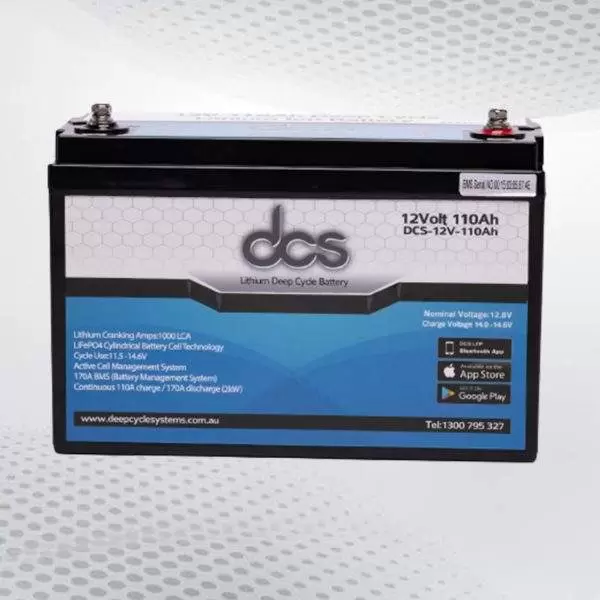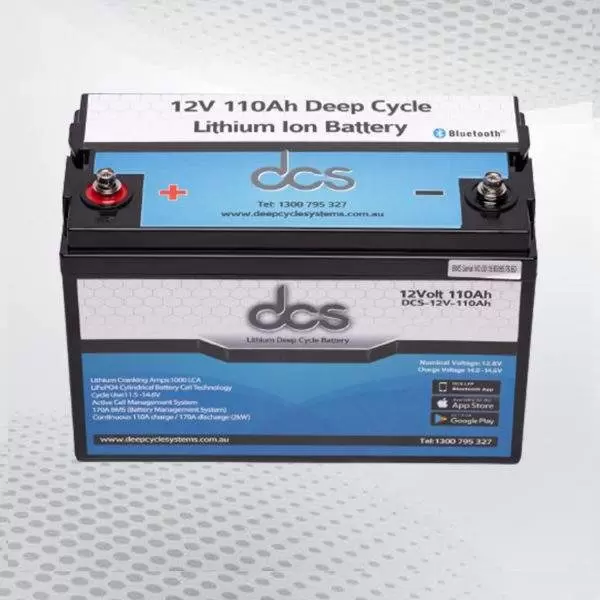Lithium-ion deep-cycle batteries are popular for powering various devices, from golf carts to motorhomes and solar energy systems. But what factors determine the cost of these powerful batteries? In this blog post, we’ll explore the key price factors associated with 100ah Lithium Battery so that you can make an informed decision about purchasing one.
What Is A Lithium Battery 12v 100ah?
A Lithium Battery 12v 100ah is a rechargeable battery designed to provide sustained power over an extended period. Unlike regular lithium-ion batteries, typically used for short bursts of energy, deep-cycle batteries are built to withstand repeated charging and discharging cycles. They are commonly used in applications that require long-lasting power, such as RVs, boats, solar energy systems, and electric vehicles. These batteries are known for their high energy density, lightweight design, and longer lifespan than traditional lead-acid batteries.
Advantages of 12v 100ah Lithium Battery
12v 100ah Lithium Battery offers a multitude of advantages compared to traditional lead-acid batteries. One of the main advantages is their high energy density, meaning they can store a larger amount of energy in a smaller and lighter package. It makes them ideal for limited-weight and space applications, such as recreational vehicles, boats, and solar power systems. Another advantage is their longer lifespan. Lithium-ion batteries have a significantly higher cycle life than lead-acid batteries, which can endure more charge-discharge cycles before their performance degrade.
Lithium ion deep cycle batteries have a higher efficiency in charging and discharging. They can be set faster, allowing for shorter recharge times, and deliver power more consistently throughout their discharge cycle. Lastly, lithium ion deep cycle batteries are maintenance-free, eliminating the need for periodic water topping and acid level checks. They also have a lower self-discharge rate, meaning they can retain their charge longer when not in use.
Factors Affecting the Lithium Ion Deep Cycle Battery Price
Several factors can affect the Lithium Ion Deep Cycle Battery Price. Firstly, quality and brand reputation plays a significant role. Well-known and reliable brands have higher costs due to their reputation for producing durable and reliable batteries. Additionally, battery capacity (Ah) and voltage (V) can impact the price, as higher capacities and voltages usually come with a higher price tag. Cycle life, or the number of charge-discharge cycles a battery can withstand, also affects the price.
Batteries with a longer cycle life tend to be more expensive. Other factors include a Battery Management System (BMS) for optimal performance and safety, charging efficiency, and any additional features or accessories included. Lastly, market demand and supply can influence prices, with high demand leading to higher prices.
Quality and Brand Reputation
Quality and brand reputation are important when purchasing a lithium ion deep-cycle battery. A well-known and respected brand is likelier to produce high-quality batteries that have undergone rigorous testing and certification. Quality batteries have superior performance and longer cycle life and provide the best value for your investment. While quality batteries may be more expensive, they are worth it in the long run as they offer reliable performance, require less maintenance, and have a longer lifespan. Investing in a battery with a reputable brand also ensures access to technical support, customer service, and warranty claims.
On the other hand, choosing a lower-quality battery to save money may lead to premature battery failure, which could cost more in the long run. Poorly manufactured batteries may also present safety risks, such as overheating or exploding.
Lithium Ion Battery 12v 100ah Capacity (Ah) of
One of the most significant factors to consider regarding the price of lithium-ion deep cycle batteries is the battery capacity, measured in ampere-hours (Ah). The higher the Ah rating, the more energy the battery can store and the longer it can power your devices or appliances. For instance, a Lithium Ion Battery 12v 100ah can power a 1000W load for approximately an hour, while a 200Ah battery can power the same gear for two hours. Therefore, the battery capacity determines how long you can run your devices before recharge and, thus, the number of batteries you’ll need for your intended application.
However, the battery capacity is also one of the most expensive components of a lithium-ion deep-cycle battery, and thus, higher Ah ratings will result in higher prices. For example, a 12V 100Ah battery may cost around $400, while a 12V 200Ah battery may cost twice that amount.
Voltage (V)
A lithium-ion deep-cycle battery’s voltage is an important factor affecting its price. Voltage is the amount of electrical potential a battery can generate, usually measured in volts (V). Most lithium-ion deep-cycle batteries come in 12V, 24V, or 48V configurations. The higher the battery voltage, the more power it can provide. A higher voltage also means that the battery can deliver power more efficiently, which can be important in certain applications. However, higher-voltage batteries tend to be more expensive than lower-voltage batteries.
When selecting a lithium ion deep cycle battery, choosing one with the right voltage for your application is important. If you are using the battery to power a small device or appliance, a 12V battery may be sufficient. However, you may need a higher-voltage battery if you use the battery to power a larger system or vehicle.
100ah Lithium Ion Battery Cycle Life
Cycle life refers to the number of charge and discharge cycles a 100ah Lithium Ion Battery can endure before its capacity significantly diminishes. In simple terms, it indicates the lifespan of the storm. The cycle life of a lithium-ion deep-cycle battery is a crucial factor in determining its price. High-quality lithium-ion batteries are designed to have a longer cycle life, which means they can withstand a higher number of cycles without experiencing a noticeable decline in performance. On the other hand, lower-quality batteries may have a shorter cycle life, resulting in a shorter overall lifespan.
Factors that can affect the cycle life of a lithium-ion battery include:
- The materials used in its construction.
- The design of the battery cells.
- The battery management system (BMS) was implemented.
A good BMS helps protect the battery from overcharging, overheating, and other harmful conditions, extending its cycle life.
Battery Management System (Bums)
One important factor affecting lithium-ion deep-cycle batteries’ price is including a Battery Management System (BMS). A BMS is a critical component that monitors and controls the battery’s performance. A good BMS ensures the battery operates within safe limits, preventing overcharging, over-discharging, and overheating. It also helps balance the individual cells in the battery pack, ensuring that they charge and discharge evenly, which maximizes the overall battery capacity and prolongs its lifespan.
The quality and functionality of the BMS can vary depending on the brand and model of the battery. Some BMS systems offer advanced features like real-time monitoring, cell-level balancing, and temperature management. These added capabilities often come at a higher cost.
Charging Efficiency
One important factor to consider when purchasing a lithium ion deep cycle battery is its charging efficiency. Charging efficiency refers to how efficiently the battery can be charged and how much energy is lost during the charging process. Lithium-ion batteries are known for their high charging efficiency compared to other battery types. It means they can be charged more quickly and with less energy loss, resulting in a more efficient and cost-effective charging process.
The charging efficiency of a lithium-ion battery is influenced by various factors, including the quality of the battery cells, the design of the battery pack, and the battery management system (BMS). A high-quality BMS can optimize the charging process, ensuring the battery is charged at the right voltage and current levels, maximizing charging efficiency.
Additional Features and Accessories
In addition to the basic specifications such as battery capacity, voltage, cycle life, and BMS, the price of a lithium-ion deep-cycle battery can also be affected by the presence of additional features and accessories. Some common additional features that may come with a lithium-ion deep cycle battery include built-in inverters, USB ports for charging mobile devices, LED lights for illumination, and Bluetooth connectivity for monitoring the battery performance. These features can enhance the functionality of the battery and make it more convenient to use, but they also come with an additional cost.
Similarly, accessories such as battery boxes, solar panel chargers, battery monitors, and charge controllers can also affect the price of the battery. These accessories can help to improve the performance, efficiency, and durability of the battery, but they may not be necessary for all users.
Market Demand and Supply
The price of lithium-ion deep-cycle batteries is also influenced by market demand and supply. As with any product, the prices tend to rise with high demand and limited supply. It is particularly true for lithium-ion batteries, which are widely used in various automotive, marine, and renewable energy industries. With the increasing demand for clean energy solutions and the growing popularity of electric vehicles, the demand for lithium-ion batteries has skyrocketed in recent years. This surge in demand has led to a shortage of supply, causing prices to increase.
The availability of raw materials needed for lithium-ion battery production can also impact prices. Certain materials, such as lithium and cobalt, are essential to these batteries, and their availability can fluctuate. If there is a shortage of these materials, it can drive up the prices of lithium-ion batteries.
Conclusion
Several factors affect the price when purchasing a lithium ion deep cycle battery. These include quality and brand reputation, battery capacity, voltage, cycle life, BMS, charging efficiency, and additional features. While a higher price tag may indicate a higher-quality battery, assessing your needs and usage is important to determine the most cost-effective option. Ultimately, by understanding these price factors, you can make an informed decision and invest in a lithium-ion deep cycle battery that meets your requirements and budget.
| Other Good Articles to Read |
| Blogs Rain |
| Cme Blog Spot |
| Garcias Blogs |
| Yyc Blogs |
| Guiade Blogs |
| Blogs-Hunt |
| Impact-Blog |
| Smarty Blogs |
| Ed Blog |
| Mo Blogs |
| Blogs Em |
| Blogs T |



